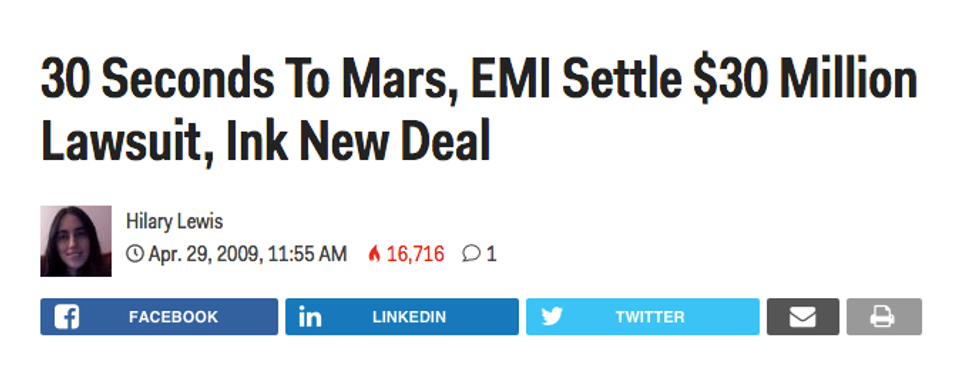The past few months have been an eye-opening and disturbing experience for Kesha fans and music lovers across the country. Even if you aren’t a fan of Kesha, you can hopefully empathize with her horrible situation, being forced to stay under contract with Sony, after years of allegedly being sexually and emotionally abused by her producer “Dr. Luke” Gottvald. Kesha was not only abused by her producer, but she also claims her and Gottvald often, “...clashed over the musical direction of her career, with the producer holding the singer’s favorite songs off her albums.” All of this happened under the not-so-watchful eye of Sony, a record label giant that collected a reported $67.84 billion in revenue in 2015. Yet, Sony is so caught up in making money that they would rather Kesha fizzle away as an artist than record with another label.
Unsurprisingly, this is not the first story of a record label choosing money over humanity. There have been a slew of notable lawsuits throughout the years that have unveiled what seems like a never-ending war between art and commerce. In 2009, one of the “Big Four” labels, EMI, sued alternative rock band, 30 Seconds To Mars, for a hefty $30 million for not recording a third album in their five-album contract. Lead singer of the band Jared Leto maintained that, “There was a point after we had sold millions of records around the world, where not only were we never paid a single penny, but we learned that we were millions of dollars in debt.” After a long and emotional trial, the band settled for a renegotiated contract with EMI and continues to record under their control.

At the end of the day, the artists that are the sole reason for existence for record labels like Sony and EMI are routinely being mistreated, cheated out of what is theirs, and locked into deals that have one priority- making money. The result is a parasitic relationship that sucks the talent, time, and emotion from artists that initially put their trust in a label to foster their talent and distribute their music.
However, big-label-oppression has led a few pioneers of the music industry to start their own labels and gain back control over their music. Established artists like Jack White, Kid Cudi, Cake, and The Rolling Stones have founded their own record companies in order to maintain total artistic and financial freedom. Hopefully, the movement towards artist-owned and independent labels will become the norm, and the record business will return to being what it was originally about -- the music.





















